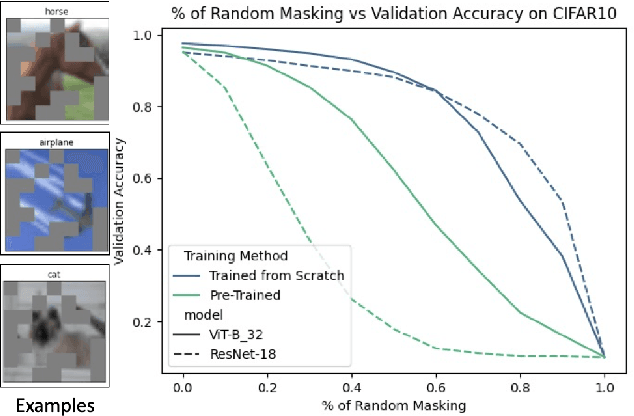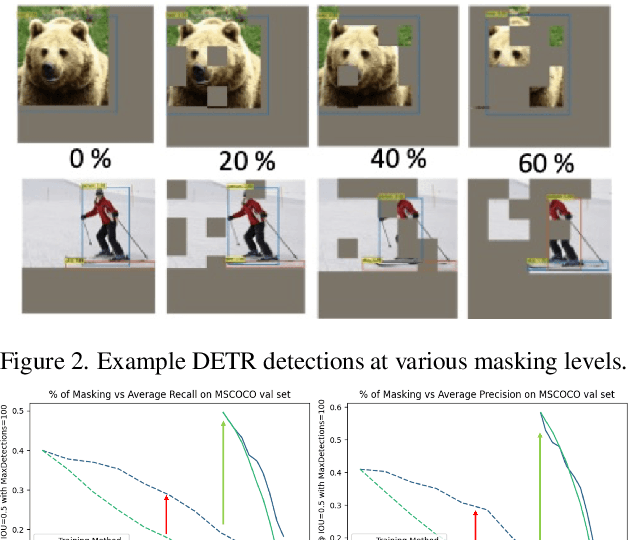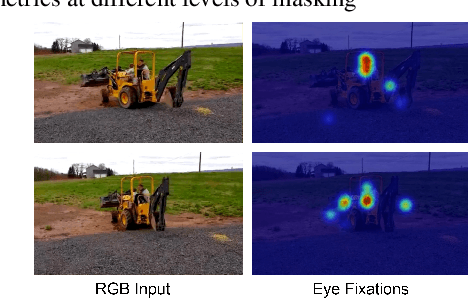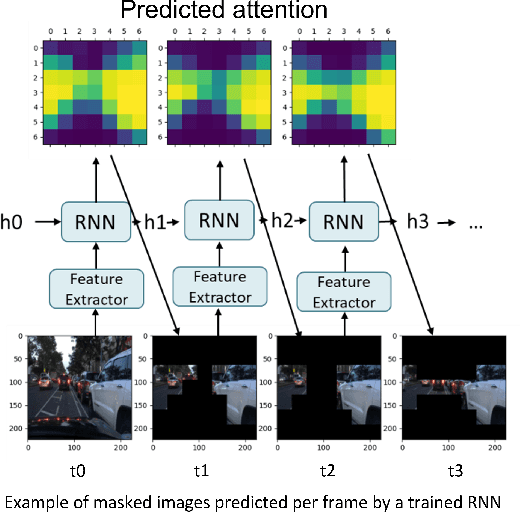Saccade Mechanisms for Image Classification, Object Detection and Tracking
Paper and Code
Jun 10, 2022



We examine how the saccade mechanism from biological vision can be used to make deep neural networks more efficient for classification and object detection problems. Our proposed approach is based on the ideas of attention-driven visual processing and saccades, miniature eye movements influenced by attention. We conduct experiments by analyzing: i) the robustness of different deep neural network (DNN) feature extractors to partially-sensed images for image classification and object detection, and ii) the utility of saccades in masking image patches for image classification and object tracking. Experiments with convolutional nets (ResNet-18) and transformer-based models (ViT, DETR, TransTrack) are conducted on several datasets (CIFAR-10, DAVSOD, MSCOCO, and MOT17). Our experiments show intelligent data reduction via learning to mimic human saccades when used in conjunction with state-of-the-art DNNs for classification, detection, and tracking tasks. We observed minimal drop in performance for the classification and detection tasks while only using about 30\% of the original sensor data. We discuss how the saccade mechanism can inform hardware design via ``in-pixel'' processing.
 Add to Chrome
Add to Chrome Add to Firefox
Add to Firefox Add to Edge
Add to Edge